Continuing with the work started in ARCOPOL projects, now MARINER project focuses on improving planning, preparedness and response to HNS spills in Europe by:
Knowledge compilation and facilitation
The aim of this task is to identify and compile existing HNS preparedness and response knowledge generated by EU funded public research as well as other existing resources and make them easy available to end users.
Main results:
Modelling and environmental impact
Under this task partners focus on two actions. On the one hand, partners are working to improve the operational use of tools for modelling HNS transport, behaviour and biological impact, and on the other hand they are defining protocols and guidelines for environmental impact assessment of HNS spills.
Main results:
Response protocols
The aim of this task is to improve the response-at-sea protocols making the most of the available knowledge for responding to chemical spills in other environments (e.g. expertise from chemical industry, civil protection, and fire crews working on-land, inland waters, etc.).
Main results:
Training
This task aims to provide tools that help to reinforce the training and exercising of responders. On this regard, MARINER partners are:
Main results:
The project partnership involves organisations from 4 countries: United Kingdom, France, Portugal and Spain. This geographical coverage assures a transnational exchange of knowledge and good practices and that a wide geographical area will benefit from the outputs of the project, which in addition will be fully transferable to other regions. Furthermore, MARINER is being supported by an Advisory Body comprising key authorities and experts from the participating countries.

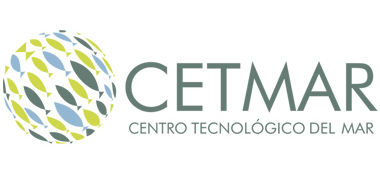
Centro Tecnológico del Mar - Fundación CETMAR
CETMAR is the coordinator of MARINER project.
CETMAR is a non-profit public foundation that aims to promote a sustainable development of marine environment & resources and to foster links and cooperation between R&D agents, the maritime-fishing industry and other major stakeholders. Control and Management of the Marine Environment and Resources area: Aimed at the protection, regeneration and improvement of the management of the marine environment and resources. Its basic lines of action are prevention, response and abatement of marine contamination of natural or anthropogenic origin and the development of studies on the state of the environment and its resources, besides other actions aimed at minimising the environmental impact of fishing and aquiculture.

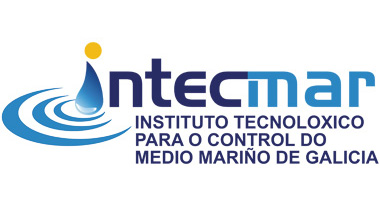
Instituto Tecnolóxico para o control do medio mariño de Galicia
INTECMAR is in charge of the quality control, monitoring and research on shellfish growing areas. The contingency plan for marine pollution incidents of Galicia includes INTECMAR as one of the official centres for advising.
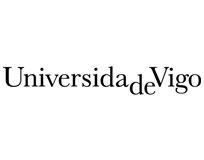
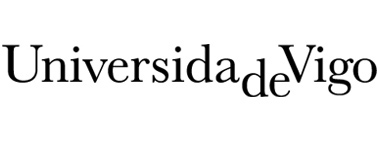
Universidade de Vigo
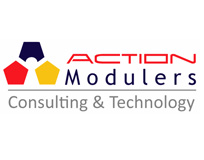
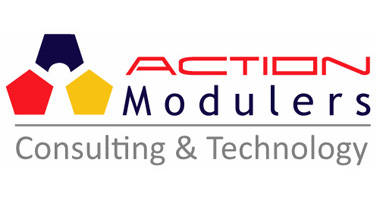
Action Modulers
Action Modulers is a private consulting company, composed by two units:
Action Modulers emerged in early 2004 with the mission of providing high quality consulting services. Through a strong connection to the university environment, the company continuously participates in scientific and technological development reaching a high level of skills.

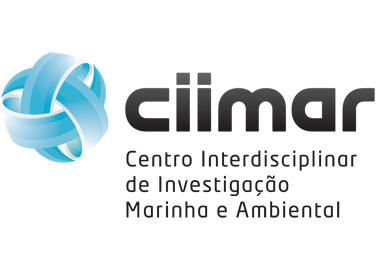
Centro interdisciplinar de Investigação Marinha e Ambiental
The CIIMAR is a research and advanced training institution of the University of Porto. Its mission is to develop high-quality research, promote technological development and support public policies in the area of Marine and Environmental Sciences.
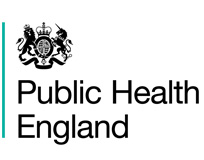
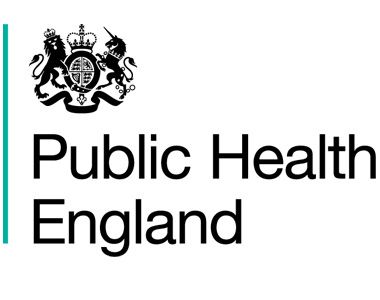
Public Health England
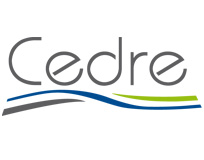
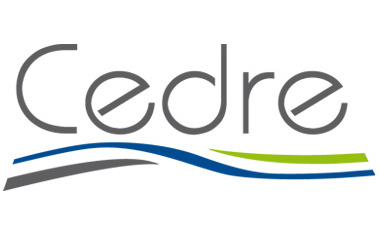
Centre of Documentation, Research and Experimentation on Accidental Water Pollution
The views expressed herein should not be taken, in any way, to reflect the official opinion of the European Union, and the European Commission is not responsible for any use that may be made of the information it contains.
Whilst MARINER makes every effort to keep the information on this web site accurate, we disclaim any warranty or representation, express or implied about its accuracy, completeness or appropriateness for a particular purpose. Thus, you assume full responsibility for using the information at this web site, and you understand and agree that neither MARINER nor any of its partners is responsible or liable for any claim, loss or damage resulting from its use.
Website Links
MARINER is not responsible for the contents or reliability of linked websites and does not necessarily endorse the views expressed within them. Listing shall not be taken as endorsement of any kind. We cannot guarantee that these links will work all of the time and we have no control over availability of the linked pages.
We do not object to you linking directly to the information that is hosted on this website and you do not need permission to do so.
The Centro Tecnológico del Mar – Fundación CETMAR (“CETMAR”), holder of CIF (tax code) G-36885853, is a social welfare and charitable foundation by Order of the Galician Regional Ministry for the Presidency and Public Administration (Xunta de Galicia) of 2 July, 2001. Its registered address is at Eduardo Cabello, s/n, 36208, Vigo (Pontevedra), Spain. CETMAR is registered in the Unified Registry of Galician Interest Foundations under number 2001/15.
The use of this website is subject to the following Terms of Use and Privacy Policy. Please, read them carefully. Moreover, we inform you that by accessing or using the website and the materials contained herein, you acknowledge that you have read and unconditionally accepted the following Terms and Conditions.
Terms and Conditions of Use
The user acknowledges and voluntarily and expressly accepts that the use of the website owned by CETMAR is made under his/her sole and exclusive responsibility at all times.
While making use of this website, the User undertakes not to act in any way that may damage the image, interests or rights of the project MARINER and/or of third parties, or that may damage, render useless or overload the website, or that may impede, in any way, the normal use of the website.
Limitation of Liability
The use of this site is at the user’s sole risk. CETMAR relinquishes any liability for errors or omissions on the contents of this Website or other websites that can be accessed through this one. Thus, CETMAR shall not be held responsible for any damage deriving from the use of the website, nor any actions carried out based on the information provided therein.
This Website contains materials prepared by the project MARINER, for information purposes only. The user must be aware that such material may not reflect the latest legislative developments or legal precedents regarding the matters analyzed. Likewise, this material can be modified, developed and updated immediately without previous notice.
The material contained in this Website shall not replace, under any circumstances, legal advice services or of any other nature whatsoever. Access to this material does not constitute a lawyer-client relationship, or any other type of trust or professional relationship between CETMAR and the user of this Website. The user shall therefore not act on the basis of the information contained here without first seeking the relevant professional advice.
CETMAR implements reasonable security measures which are adequate to detect the existence of viruses. Nonetheless, the user must be aware that the current security measures for computer systems on the Internet are not entirely trustworthy and that, therefore, CETMAR cannot guarantee the non-existence of viruses or any other elements that may cause alterations to the user’s computer systems (software and hardware) or to his/her electronic documents and files contained in the already mentioned systems.
Industrial and Intellectual Property Rights
The material herein published is subject to MARINER copyright protection unless otherwise indicated. In addition to the logotypes of this project, the materials protected by copyright may be freely reproduced in any format or medium without special permission for that purpose. This is subject to the material being reproduced accurately and not being used in a derogatory manner or in a misleading context. The copyright and the source must be mentioned whenever a material is published or issued to third parties. However, permission granted for reproduction of the material on this Website does not extend to the reproduction of the material subject to third party’s copyright. Authorization to reproduce such material must be obtained from the copyright holders concerned (e.g. photos).
Personal Data Protection
This Privacy Policy has been developed taking into account the provisions of the Organic Law 15/1999 (13 December) on Personal Data Protection, the Recommendations No. 2/2001 (17 May) and No. 1/1999 (23 February), issued by the European Group of Article 29 pursuant to Directive 95/46/EC of the European Parliament and of the Council of 24 October.
On this Website, no personal data is gathered nor provided to third parties without the prior consent of the users.
Browsing Data
The browsing data and software necessary for operation of the website gather some personal data, the transfer of which is implicit to the use of Internet communication protocols.
Such information is not obtained in order to be associated with identified users, but its own nature could allow, through the association with third-party data, their identification. This category of data includes IP address or domain name of the computer used to enter the Website, URL address of the requested resource, hour, and other parameters related to the operating system of the user’s computer environment.
These data shall only be used to gather anonymous statistical information regarding the use of the Website or to control its appropriate technical functioning. Immediately after the verification of these data, they will be cancelled without prejudice to the obligations established by the Act 34/2002 of 11 July, on Information Society and Electronic Commerce Services.
Links
This Privacy Policy is only applicable to MARINER Website (www.mariner-project.eu), and is not guaranteed in the access of links by this website nor in the links from this one to other websites.
The links included in this website may lead users to other sites, webs and/or applications belonging to third parties, which are not controlled by CETMAR in any way. CETMAR is not responsible for the contents or condition of said sites, webs and applications. By providing those links, CETMAR does not recommend them nor give its approval to their contents.
Security
The Security measures used by CETMAR are adapted to the required security level for the data provided by users, in accordance with article 9 of Organic Law 15/1999 of 13 December on Personal Data Protection and with its development regulation, approved by Royal Decree1720/2007 of 21 December.
Applicable Law and Jurisdiction
The Spanish legislation shall be applicable for the resolution of any disputes or questions related to this website or the activities carried out in it. The parties hereto specifically submit to said legislation; the Courts of Vigo being competent for the resolution of any conflict arising from or related to its usage.
Material featured on this site is subject to MARINER copyright protection unless otherwise stated. Apart from the MARINER logo, copyright protected material may be reproduced free of charge in any format or media without requiring specific permission.
This is subject to the material being reproduced accurately and not being used in a derogatory manner or in a misleading context. Where material is being published or issued to others, the source and copyright status must be acknowledged.
The permission to reproduce material does not extend to any material on this site which is identified as being the copyright of a third party. Authorisation to reproduce such material must be obtained from the copyright holders concerned (e.g. photos).
What is a Cookie?
A cookie is a file or device that is downloaded into the User’s terminal equipment (computer/smartphone/tablet) in order to store data that could be updated and recovered by the entity responsible for its installation. In other words, a cookie is a file that is downloaded into your computer when accessing certain websites. Cookies allow websites, among other things, to store and to recover information about the browsing habits of users or users’ equipment and, depending on the information and on the way they use their equipment, cookies can serve as a way to recognize them.
Which Type of Cookies Does this Website Use?
On this Website the cookies serve to make the usage of the website and the navigation through it easier to the user, to guarantee access to certain services, and to improve its functional configuration.
More specifically, the cookies used by this Website are the following:
Own cookies: sent to the user’s equipment from an equipment or domain managed by the editor and from which the requested services are provided to the users.
Third-party cookies: sent to the user’s equipment from an equipment or domain that is not managed by the editor, but by another entity that processes the obtained data thanks to cookies.
Session cookies: designed to collect and store data while accessing the Website.
Persistent cookies: designed to collect and store data over a specified period of time.
Technical cookies: used to enable the User to browse through a website, platform or application.
Analytic cookies: gathered to analyze the behavior and the actions of the users, as well as to create browsing profiles in order to include service and technical improvements.
Cookies Overview
Technical Cookie: Session (expiration); Own (own/third-party); PHPSESSID (Name). This type of cookie is used by PHP encrypted language in order to allow the session variables to be saved by the server. This cookie is vital for the functioning of the Website (Functionality).
Technical Cookie: Persistent (expiration); Own (own/third-party); B_cookiesMsg (Name). These cookies remind us that you have already visited our Website and, thus, we can avoid the warning message about cookies information. These cookies will not be applied if you turn them off for this Website (Functionality).
Analytic Cookie: Persistent (expiration); Third-parties, Google Analytics (Own/third-parties); _ga (Name). These cookies are set by Google Analytic in order to track the usage of the website. These cookies will not be applied if you turn them off for this Website (Functionality).
How to manage cookies settings?
This section will provide a brief overview of how to make consultations about and carry out the configuration of the cookies system when using the most common web browsers.
In this regard, almost all web browsers enable the user to obtain general information about the cookies installed in a website. More specifically, they allow the user to verify the existence of cookies, their expiration or the removal system. In this connection, several related links are provided for further information:
Nonetheless, users can choose whether to allow, block or remove the cookies installed in their equipments by modifying their web browser configuration in accordance with the instructions given. For further information, you must note that, usually, the cookies configuration is located either at the browser’s “Preferences” menu or at its “Tools” menu. In any case, you can always resort to the Help function of your browser to solve any doubts that may arise.
It is convenient to take into account that if the installation of all the cookies is prevented, the web contents and certain functions and services may be affected.